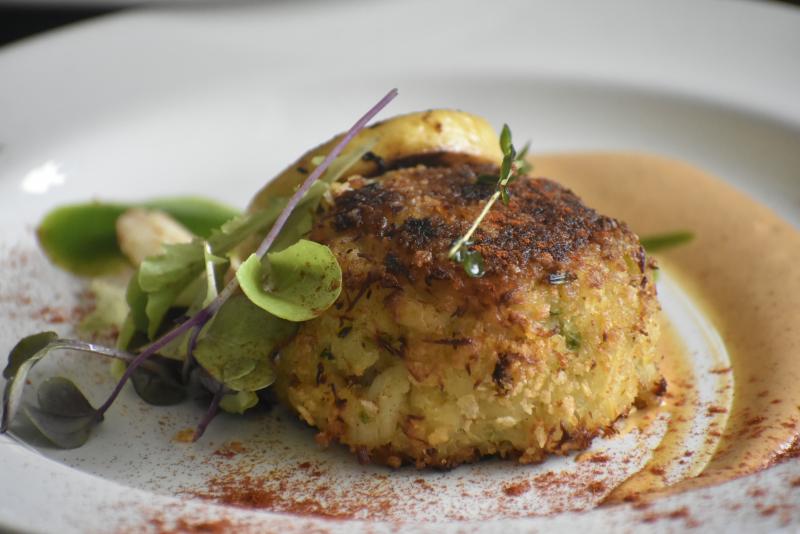
Georgia’s commercial and recreational shrimpers will have more time this season to harvest food shrimp after the state Department of Natural Resources extended the shrimping season Monday.
State law normally closes the shrimp fishery Dec. 31, but the Commissioner of Natural Resources can lengthen the season if data show shrimp are abundant and likely to rebound the following year, explained Eddie Leonard, a biologist with DNR’s Coastal Resources Division, which manages marine fisheries in Georgia.
“The data we collected in December indicates there is a still a good number of large shrimp in state waters off Georgia’s beaches,” Leonard said. “We also saw a good number of shrimp inshore, especially in creeks—and in rivers, as well. Those inshore populations will be able to spawn in the spring and move offshore in April or May to support next year’s shrimping season.”
To help inform fishery decisions, Leonard and other Coastal Resources Division biologists collect data about shrimp populations year-round aboard the state-owned Research Vessel Reid W. Harris. This 54-foot boat trawls a 40-foot net at 36 sites along the Georgia coast each month, and biologists record data about how many shrimp are caught and the total weight. (Click here for a video about how the Coastal Resources Division collects data for shrimp fishery management.)
The 36 trawls are spread out evenly among six major sound systems up and down Georgia’s coast. In each sound, two trawls are conducted in creeks and rivers, two in the sounds and two off beaches. After 15 minutes, the net is brought aboard the Reid W. Harris and biologists sort, count and weigh the catch. Specifically, the biologists are looking to see how many shrimp it takes to make a full pound. If the shrimp are larger, it will take fewer shrimp to make a pound. If they are smaller, it will take more. This number is referred to as “headcount.”
When the headcount exceeds 50, Georgia law prescribes that shrimping season must close because the shrimp are smaller. In December, the average headcount off Georgia’s beaches was 21.1, meaning that’s how many shrimp it took to make a full pound. The 20-year average for this time of year is 29.9, indicating this year’s shrimp are larger than usual. Similar results were observed in creeks, rivers and sounds.
Biologists also use a measurement called “catch per unit effort” when making recommendations to the Commissioner about opening and closing the shrimp fishery. The catch per unit effort is how many pounds of shrimp are harvested with each 15-minute trawl. In December this year, an average of 2.4 pounds of shrimp were caught during each trawl off Georgia’s beaches. The 20-year average is 1.9, meaning more shrimp are being caught this year than the rolling average. Creeks, rivers and sounds also saw higher rates of catch per unit effort in December.
“These factors taken together give us a pretty good picture of the overall health of the shrimp fishery,” Leonard said. “We present these data to an advisory panel made of commercial and recreational shrimpers, scientists and concerned citizens, and they make their recommendations to the Commissioner, who ultimately determines whether or not to extend or close the shrimping season. In this case, he decided to extend it a bit longer.”
Coastal Resources Division biologists will continue to survey the shrimp population in coming weeks and will monitor data to determine when a shrimp fishery closure is appropriate. The Commissioner has the authority to extend the season through February if data show the fishery is healthy enough to rebound the next year. The Coastal Resources Division will announce when the fishery is closing.
This season in Georgia, there are 213 licensed commercial shrimp trawlers and 15 licensed commercial cast-net shrimpers. Trawler license sales are 13% below the 10-year average, while cast-net license sales are significantly below the 200 license limit. The average dockside value—what the shrimper directly earned—of one pound of shrimp this season is $4.05, slightly lower than the five-year average of $4.26. Coastal Resources Division does not collect data on wholesale or retail prices.
For more information, visit www.CoastalGaDNR.org or call 912-262-3140.
December 30, 2020 at 11:07PM
https://ift.tt/3n2Al8c
Georgia Shrimp Season Extended Into 2021 - gon.com
https://ift.tt/3eNRKhS
shrimp

No comments:
Post a Comment